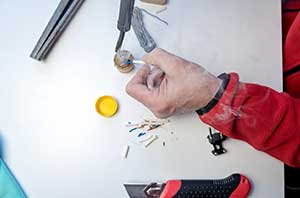
One of the chapters of Title 15 is Chapter 202. Within Chapter 202, the state of Nevada defines different kinds of crimes against public health and safety. These offenses have been made illegal because they are considered to be behaviors that present an unacceptable risk of harm. Crimes against public health and safety could be misdemeanor, gross misdemeanor, or felony offenses depending upon the specific wrongful actions, but conviction for any of the crimes listed in Chapter 202 could have serious consequences for your future.
If you have been accused of violating the law and committing a crime made illegal in Chapter 202, you have a legal right to defend yourself and a right to be considered innocent until proven guilty. LV Criminal Defense can help you to protect your rights and fight for your freedom. Give us a call today to find out about the specific help that we can offer to you and to learn how a compassionate and knowledgeable Vegas defense attorney on your team can advocate for you.
There are many different subcategories of offenses found within Chapter 201. For example, this chapter of Nevada’s penal code prohibits criminal conduct related to the:
• Unsafe consumption of alcoholic beverages: The law prohibits selling or giving alcohol to minors, purchasing alcohol by minors, selling alcohol that is too strong, and selling alcohol vaporizing devices, among other offenses.
• Miscellaneous crimes related to public health: These offenses include crimes such as willfully poisoning food or water, unlawfully depositing dead animals, garbage, or rubbish on public highways; advertising prohibited items, including services designed to produce a miscarriage; and the use or sale of liquid silicon.
• Offenses related to tobacco: The law establishes a prohibition against the use of tobacco in certain locations and imposes requirements for the removal of tobacco-related paraphernalia.
• Laws related to dangerous weapons and firearms: Various statutes prohibit offenses such as setting spring guns; possessing firearms while under the control of drugs or alcohol; unlawful possession of explosives; unlawful manufacture, possession, sale, or advertisement of hoax bombs; possessing dangerous weapons on school grounds, and more.
• Laws on concealed firearms: The law establishes permitting requirements, the process of issuing a permit, and regulations on concealed carrying firearms.
• Laws on tear gas bombs and weapons: Statutes within this subsection prohibit the sale or possession of tear gas bombs; impose penalties for removing manufacturer names and serial numbers and weapons; and establish requirements on the inspection of permits and the revocation of permits.
• Laws on acts of terrorism, weapons of mass destruction, lethal agents, toxins, and host substances: The law defines acts of terrorism, biological agents, chemical agents, and other key terms. It also establishes penalties for acts of terrorism, actions related to weapons of mass destruction, and the making of threats or the conveyance of false information in connection with terrorism or with weapons of mass destruction.
• Laws on public nuisance: Laws within this subsection establish criminal and civil penalties for maintaining or permitting a nuisance.
• Miscellaneous crimes concerning public safety: There are laws within this subsection related to various types of unlawful conduct, including putting lethal bait on public property; leaving children unattended in a car; removing property to obtain scrap metal; and performing duties with willful and wanton disregard of the safety of persons or property.
• Laws on explosives and bomb threats: Nevada prohibits the unlawful transport and possession of bombs within this subsection of Chapter 202.
• Laws requiring the reporting of certain offenses against children: Nevada establishes a duty to report violent or sexual offenses against children 12 or under and establishes a penalty for those who are subject to this duty but who do not make required reports. The law also establishes exemptions from the duty to report and provides protections from civil liability in circumstances where a report of violence or abuse was made in good faith.
These are just some of the many different types of offenses that are addressed in Chapter 202. Each different statute outlines specific criminal elements, provides definitions of unlawful conduct, and/or imposes penalties upon defendants who have been convicted of violating Nevada law by committing a crime against public health and safety.
Nick Wooldridge has a long track record of representing clients accused of serious federal and state crimes in Nevada.
If you have been accused of a crime against public health and safety, Vegas criminal attorneys can help you understand the specific elements of the crime that the prosecutor must prove to secure a conviction and can provide assistance in understanding the possible consequences of conviction.
An experienced attorney can also help you to evaluate the strength of the evidence against you, determine the likelihood of acquittal, and make a fully informed decision about whether to plead guilty or to try to go to court to stand up for yourself.
LV Criminal Defense has extensive experience handling cases arising from alleged violations of Chapter 202 of Nevada’s criminal code. Our dedicated and compassionate defense lawyers will advocate for you at every step of your criminal case with the goal of helping you to avoid or reduce the consequences of conviction. To find out more about how our firm can put our extensive legal experience to work on your case, give us a call today.
When I initially met with Mr. Wooldridge, he took the opportunity to sit and go over my problem with me. He described details in my case which he found disturbing and explained why he I should have him on my side.